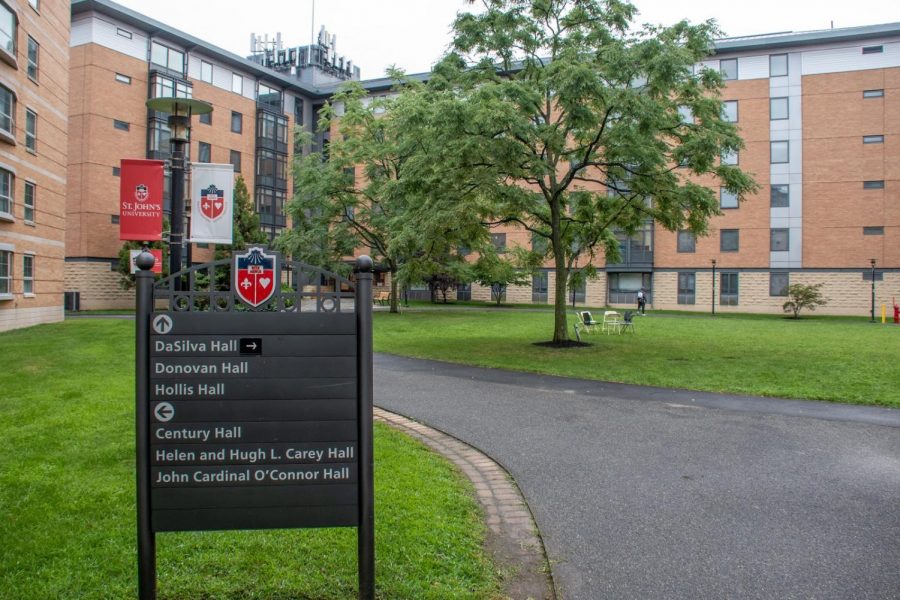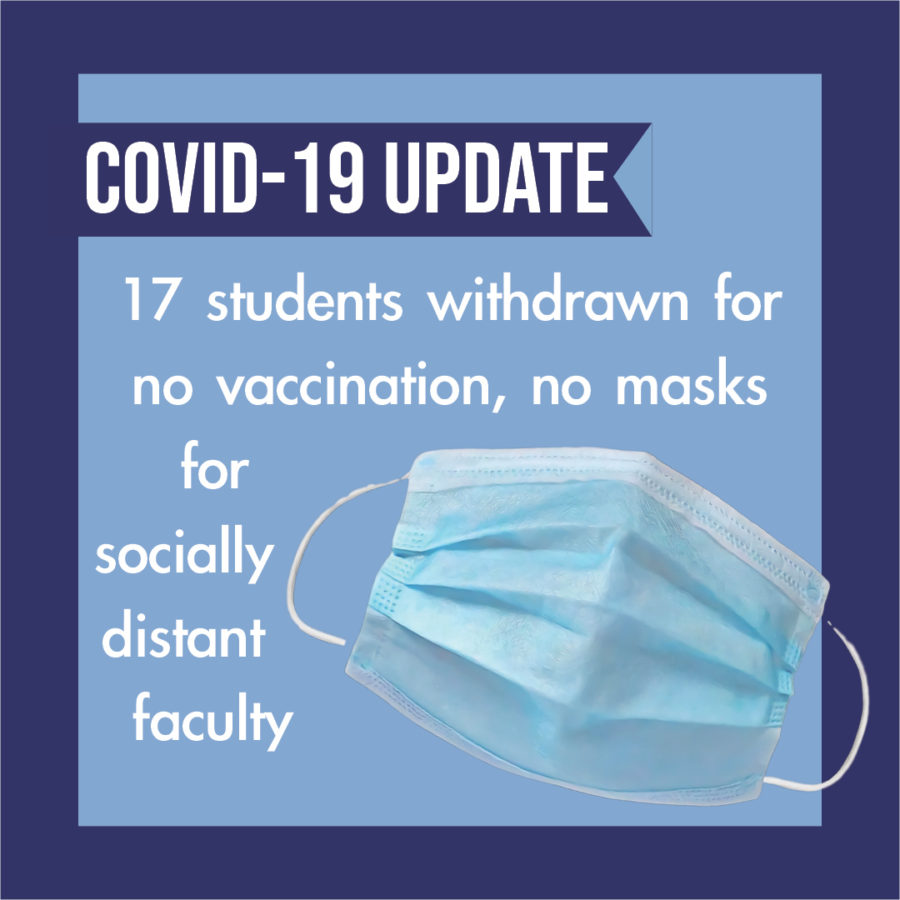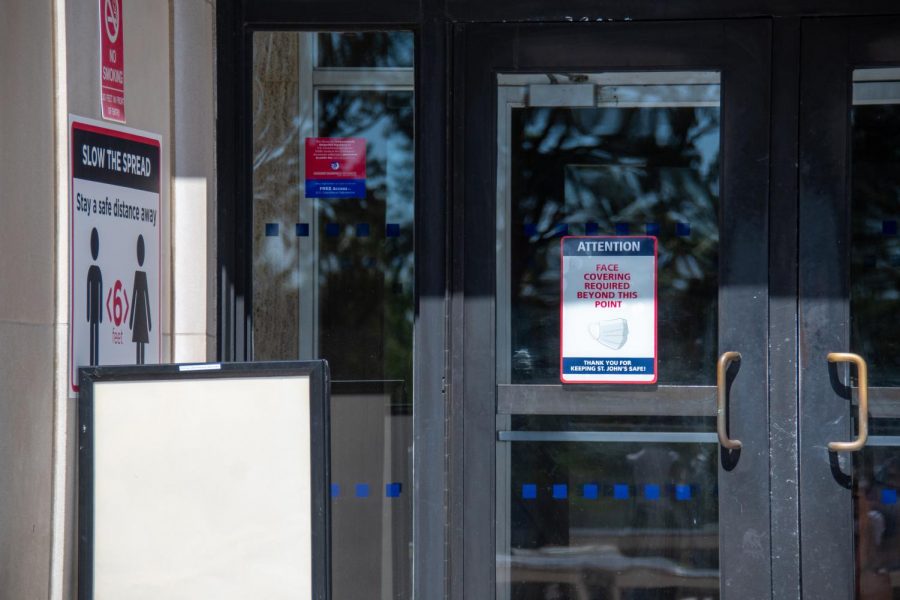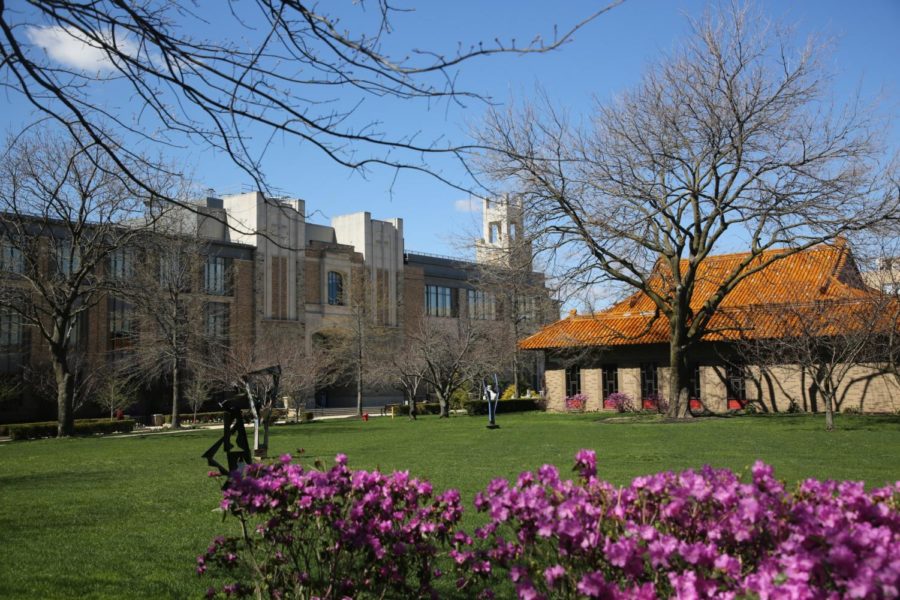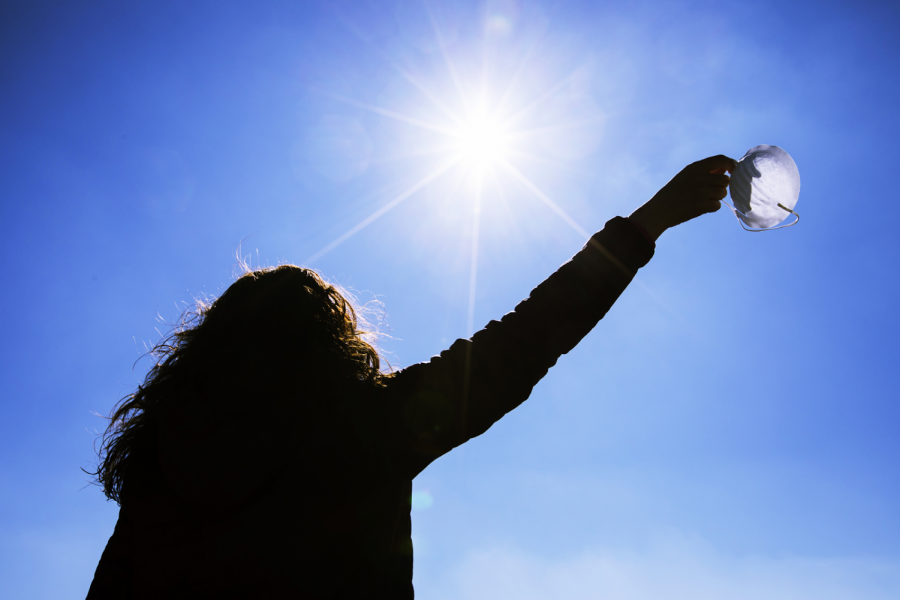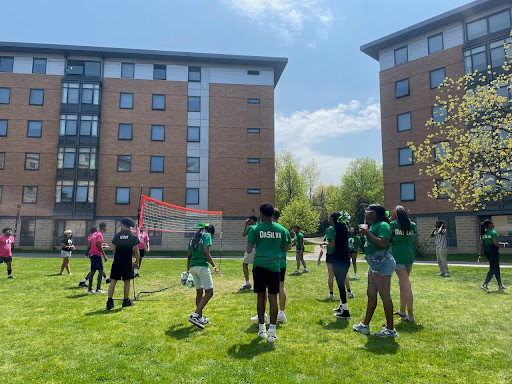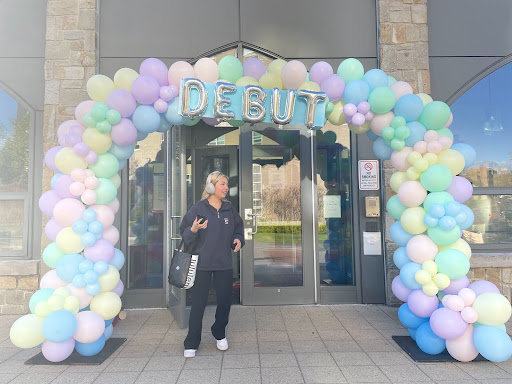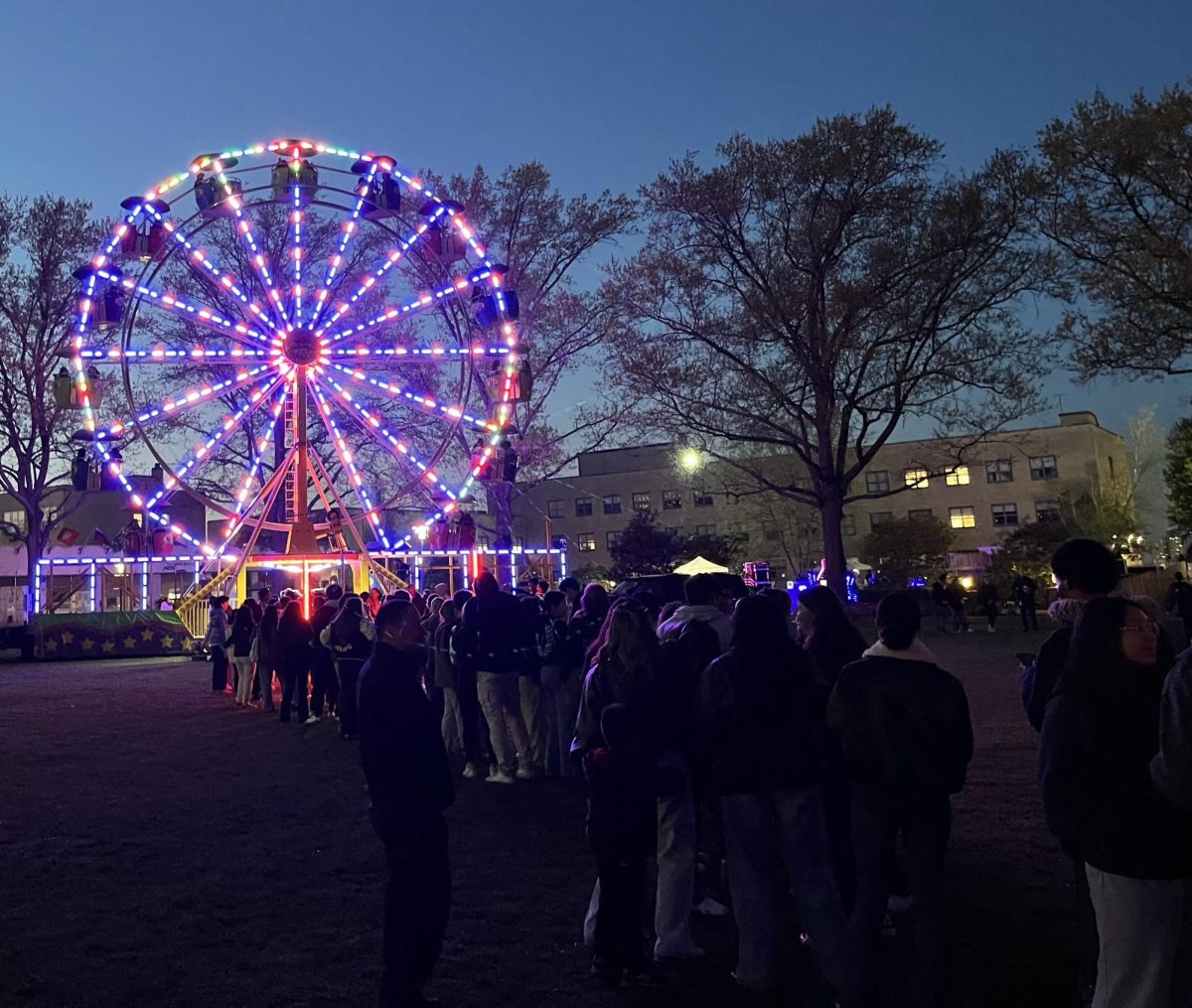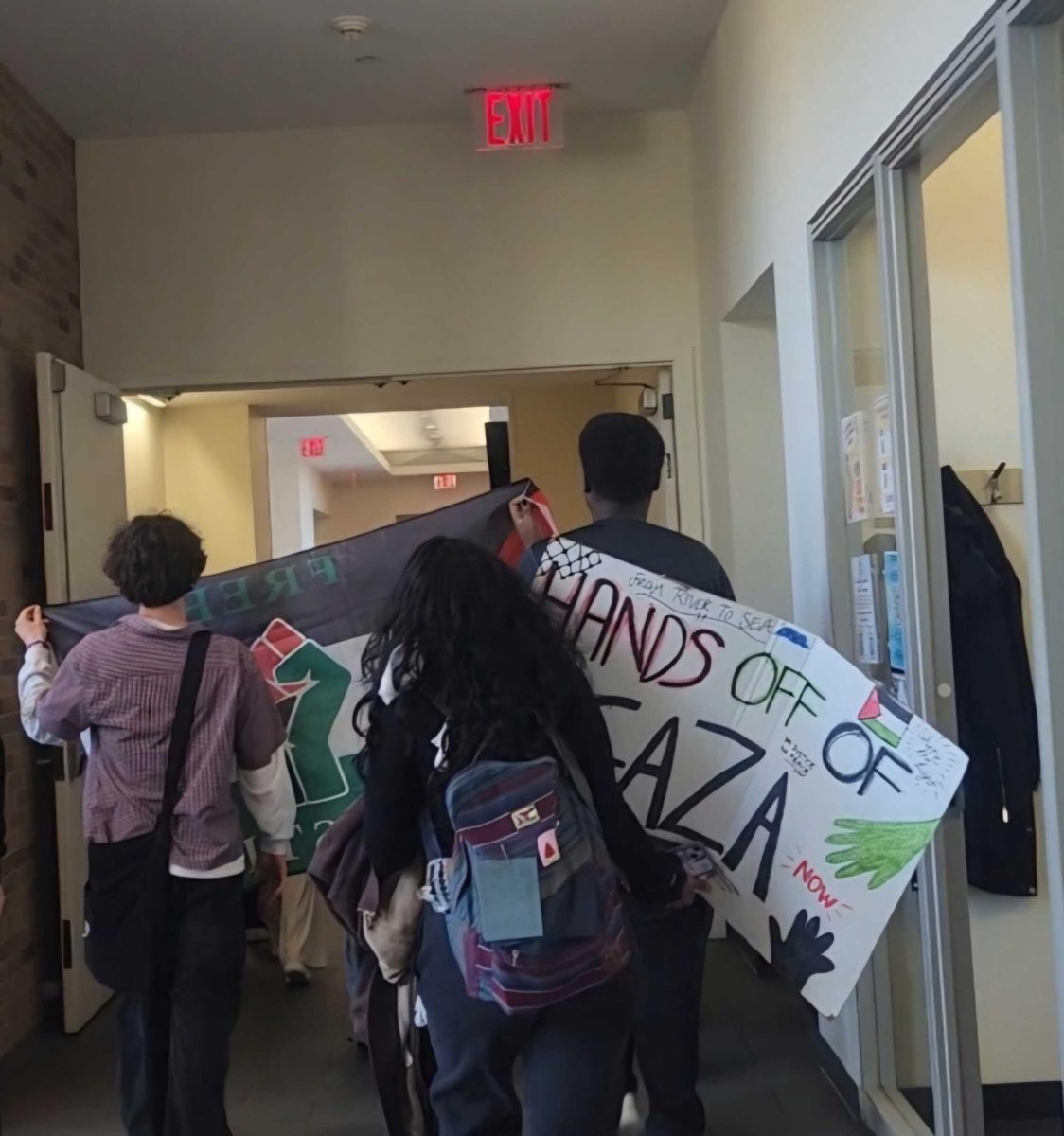Move-in week has come and gone, but this year there were no “welcome week” festivities on the Residence Village strip, and nothing but empty chairs could be seen through the high windows of Montgoris Dining Hall. Instead both have been replaced by large outdoor tents in the Residence Village where students can eat and socialize outdoors and virtual activities for students to attend without ever leaving their dorm rooms.
As the University attempts to proceed with on-campus operations, resident students are returning to a socially-distanced campus and, in turn, new everyday challenges when it comes to navigating campus life.
Socially-distant social life
With fewer students living in residence halls, and many of those who do spending more time in their dorms, the Queens campus is noticeably emptier than years past. For senior Caitlin Burke, this is not the way she envisioned her last year living on campus would go.
“A lot has changed in my day-to-day because of the mix of online and in-person learning, so I’m not out on campus as much as I used to be,” Burke said. “So I’m in my room a lot except for when I have in-person [classes] occasionally and am getting food.”
Smaller classes and fewer opportunities for socialization have also left students without many opportunities to network, spend time with friends or even attend meetings for campus organizations.
“My social life on campus has diminished significantly,” Allison Shortell, a sophomore, told the Torch. “I was excited to move in with my friend this semester. It used to be a lot of fun living with her and exploring the city on the weekends. Unfortunately she couldn’t dorm on campus this semester due to the pandemic.”
“The rules are important, but it’s hard to interact with others due to masks, social distancing and the emptier campus,” Shortell said. “I have my reasons for living on campus, but to be honest, I look forward to going home every weekend.”
“I worry about being sent back home as a result of rising COVID cases. It was a risk deciding to come back despite all the precautions St. John’s put in place – masks, smaller classrooms, et cetera. It’s hard to keep tabs on every student, professor and staff member if they’re following the rules on campus and off campus. Even if we do fill out a COVID survey every day,” she continued.
Students protecting students
This “new normal” of life for resident students mirrors the “Johnnies Care Commitment,” a philosophy of COVID-era St. John’s in which the well-being of the University community relies on “responsible decision making by the entire University community,” as outlined on the St. John’s Reopens website.
In terms of housing, the responsibility falls largely on residents to make responsible, safe choices.
“It is critically important that resident students hold themselves and their suitemates accountable for not bringing others into their ‘family unit’ to protect their health,” the Office of Student Affairs said in a statement to the Torch. “Students who violate this residence life policy will be written up for a policy violation and will be referred to the Office of Student Conduct.” Guest violations typically entail warnings, fines or loss of guest privileges. Students who have to meet with the Office of Student Conduct are notified by email.
But are students making the right choices?
“Most people are being responsible, at least from what I’ve seen in Carey, but I’ve definitely seen people inside the dorms not have masks on in the hallways, even if they’re walking with someone they don’t live with, so that’s a little worrying,” Burke said.
No promise of housing refunds
Students who completed housing assignments may have noticed a new amendment to their 2020-2021 Residence Hall Agreement. The fall housing term is now set to end Nov. 22 — at which time students are expected to move off campus and finish out the remainder of the semester from home. According to the amendment, these dates remain subject to change, “based on applicable laws, rules, regulations, and public health guidance.”
“Students may be required to vacate the residence halls prior to the end of the 2020-2021 academic year,” the amendment continues.
Though resident students received a partial reimbursement of 56% for room and board in the spring when they were abruptly sent home, that might not be the case for the fall semester. “The revised housing term dates and/or any changes to those dates, do not obligate the University to offer a housing or meal rate reduction,” the amendment states.
However, if a student decides to cancel their housing at any point during the academic year, the standard housing cancelation process would remain unchanged. According to the housing agreement, this includes a $500 cancellation fee, as it normally does.
Among the changes to the housing agreement for this academic year is also a pause on the guest policy, which originally allowed students to sign in day or overnight guests, whether they were a University student or not. Now, resident students can no longer have any guests, regardless of student status.
Other amendments include a halt on large gatherings, encouraged regular cleaning of suites and living spaces and a note on avoiding sharing household items such as drinking glasses.
Communal floor lounges in residence halls will also remain closed throughout the semester, “with the exception of some of the kitchen areas,” according to the Office of Student Affairs. “These will be open for students’ convenience and for those with special dietary needs to use but are not to be used for gatherings. Students should wipe down all surfaces before and after use.”
What’s next?
“I’m nervous about being back because obviously my health relies on the people around me following the guidelines and being responsible and I’m not sure how much I trust people to do that, because more people than you would think walk around campus not wearing their mask or wearing it incorrectly,” Burke said. “There are people who follow the rules, but when you hear that there may already be parties happening – I’d say I’m glad I’m not around people that often.”
“I can’t say I’m looking forward to anything right now,” Shordell said. “I’m hoping St. John’s might host some activities, either online or outside, that I’d like to participate in.”
Resident students – masked or not – can still be seen on the strip, sitting together on benches or eating at new outdoor seating locations on the basketball court outside of Montgoris Hall or in front of Century Hall. The Queens campus is not entirely devoid of student life, but it now comes with all-new territory for new and returning students.













